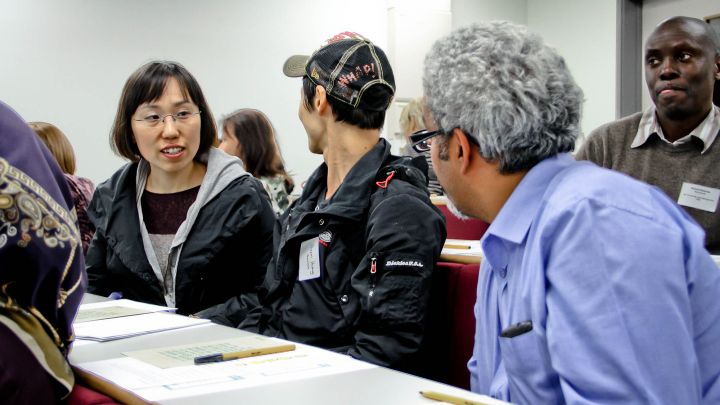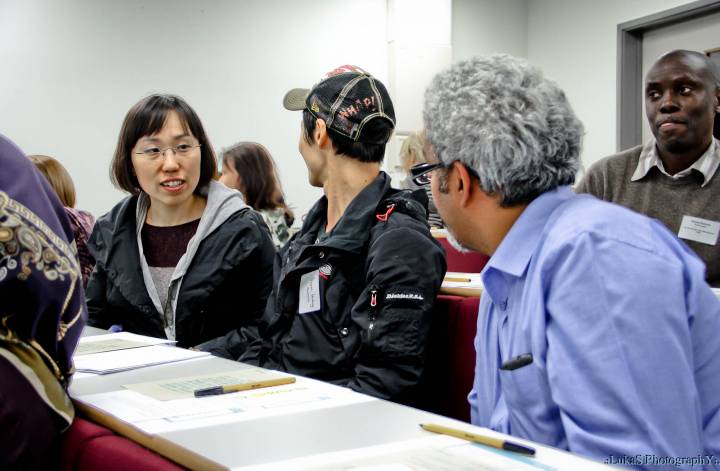Exploring family dynamics in women's choices in the informal economy - an SBRC seminar

This event has taken place
View all upcoming events at Kingston University.
Time: 1.00pm - 2.00pm
Venue: Business School Room 0015, Kingston Hill campus, Kingston Hill, Kingston upon Thames, Surrey KT2 7LB
Price:
free
Speaker(s): Dr. Mirela Xheneti

Abstract
More than 50% of non-agricultural work in the developing countries is provided in the informal economy, with women in particular being disproportionally represented as a result of persistent gender-based constraints. Despite the increasing literature on the informal economy, the role played by the formal and informal institutional dynamics, affecting the choices of individuals to operate in the informal sector is not very well understood. Within these discussions, family as a social institution holds great explanatory purchase. Our aim in this paper is to look at its dynamic influence along lines of age, education, experience and skills, and social expectations, as well as different strength and quality formal institutional frameworks of different spatial contexts. We do this by exploring women's choices to operate informally in the case of Nepal. Nepal is a good empirical site because of the large number of women operating informally and its highly stratified society. Focusing on three case study regions: Kathmandu, Pokhara and Biratnagar and 90 interviews with women operating informally, we are able to conceptualize the enabling/constraining role of the family along three inter-related levels: the individual (i.e. caste, ethnicity, migration patterns, household responsibilities); business (i.e. access to markets, suppliers, location choice and customer relationships) and social (i.e. (discouragement, participation in business organizations, autonomy in decision making, use of profits). These findings allow us to contribute to the literature on the informal economy in several ways: first, we extend theorisations of business emergence and development in the informal economy using a family embeddedness perspective, integrating it with gender in developing country contexts; second, we provide new insights on the literature on formalisation highlighting the role of social institutions and women life circumstances in decisions to operate informally in the developing world.
About the speaker
Mirela Xheneti is a Senior Lecturer in Entrepreneurship and Small Business at the University of Sussex in the UK. Previously to joining the University of Sussex in September 2011, Mirela worked as a Researcher at the Small Business Research Centre (SBRC), Kingston University. Mirela holds a PhD from the School for Policy Studies, University of Bristol. Mirela has a special interest in entrepreneurship and small business development in post-socialist countries and especially the role of institutions and policies in creating a framework for productive entrepreneurial activities in these countries. Mirela has worked on different projects that explore the links between entrepreneurship and regional/local development and has conducted both qualitative and quantitative research. Mirela has been recently recipient of research grants from the Centre for Economic Policy Research (CEPR) and the Department for International Development (DFID) (2014; 2015). Mirela's recent work has appeared in numerous academic journals and book editions.
For further information about this event:
Contact: Dr Hang Do
Email: H.Do@kingston.ac.uk
Directions
Directions to Business School Room 0015, Kingston Hill campus, Kingston Hill, Kingston upon Thames, Surrey KT2 7LB:
